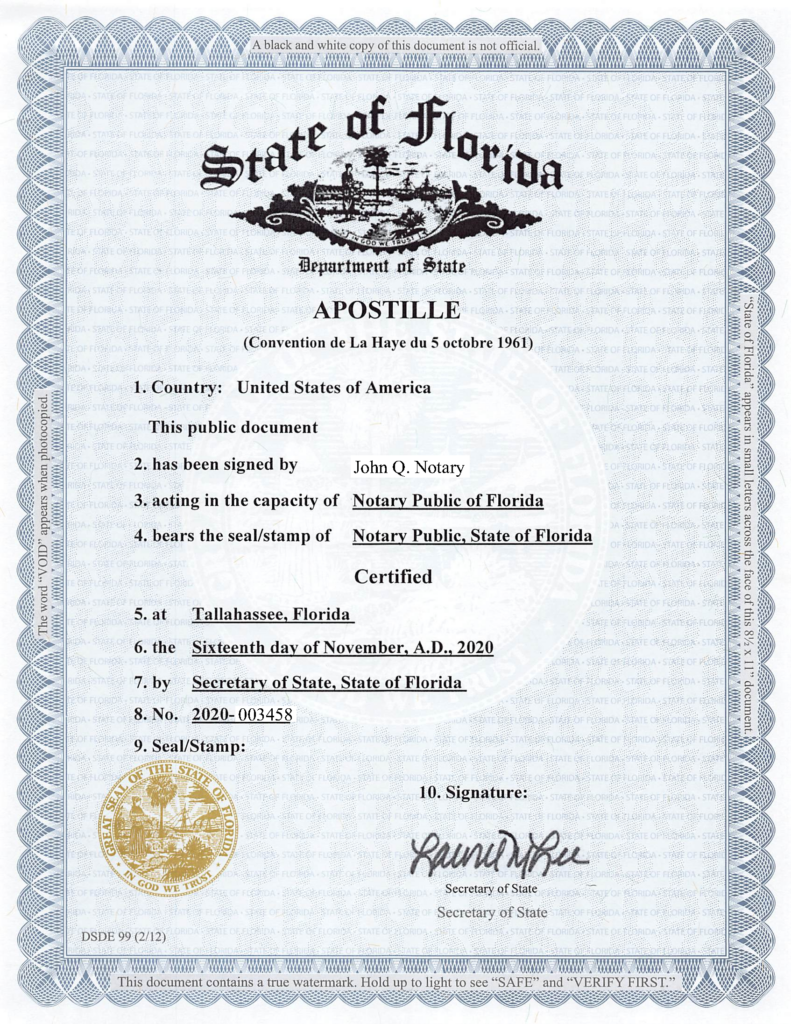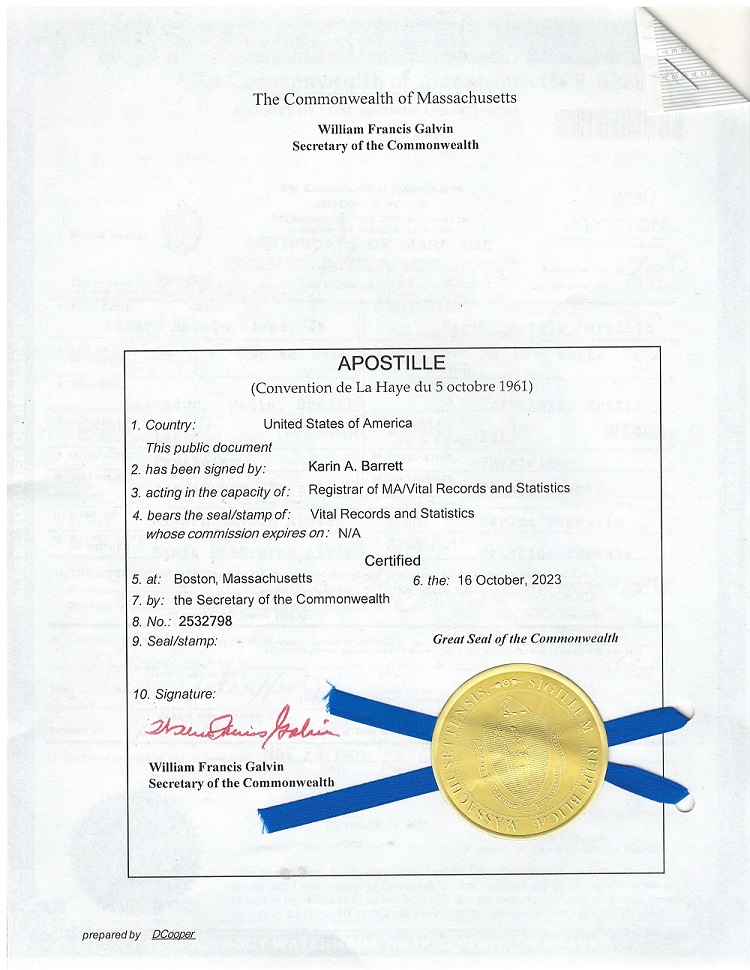Unveiling the Essential Duty of Apostille in Simplifying International Paper Validation Procedures
In the world of worldwide affairs, the recognition of files holds vital importance. Amidst the web of administrative treatments and varying legal needs throughout various nations, the role of apostille becomes an essential facilitator in enhancing the process. By fastening an apostille to a record, it goes through a streamlined validation that is identified across numerous nations, therefore easing the concerns related to cross-border record authentication. As we look into the intricacies of this specialized certification, the subtleties in between apostille and conventional recognition methods come to light, dropping a brand-new point of view on the effectiveness and performance of this important yet frequently forgotten process.
Comprehending Apostille Basics
In the world of file validation for international use, grasping the essential principles of apostille authentication is vital. An apostille is a customized certificate that confirms the authenticity of a document for use in foreign nations that become part of the Hague Apostille Convention. Understanding the fundamentals of apostille entails identifying that it does not verify the web content of the file but rather certifies the trademark and seal of the issuing authority. This certification simplifies the process of worldwide file recognition by ensuring that the document will certainly be identified as real in countries that are celebrations to the Apostille Convention.
Apostilles are frequently released for important records such as birth certifications, marriage certificates, and academic transcripts. The key parts of an apostille include the name of the nation where it was provided, the name of the individual signing the record, the ability in which the individual authorized the document, the seal or stamp of the releasing authority, and the day of issuance. By recognizing these fundamental elements of apostille authentication, organizations and individuals can browse the complexities of global record validation with self-confidence and performance.
Advantages of Apostille for Validation

Moreover, the apostille streamlines the confirmation process by providing a standard certification that validates the credibility of the document, such as birth certifications, marital relationship licenses, notarized acts, and scholastic records. This standardized format minimizes the threat of rejection as a result of strangeness with international files, therefore improving the performance of cross-border transactions.
Additionally, the apostille aids in removing the requirement for several layers of verification by government authorities, as the apostille itself signifies the file's legitimacy. This not just speeds up the record recognition process but also minimizes the linked prices and bureaucratic difficulties, making it a cost-efficient and convenient option for individuals and services involving in international tasks.
Simplifying Cross-Border Document Authentication
Simplifying cross-border record authentication, the apostille removes the need for lengthy and commonly challenging validation treatments normally needed when presenting records in foreign nations. By attaching an apostille to a file, the releasing country licenses the authenticity of the document, making it conveniently acceptable in various other countries that are component of the Hague Apostille Convention.
Furthermore, the apostille system boosts the safety and credibility of cross-border record validation by giving a transparent and worldwide accepted system for confirming the credibility of records. This simplification of authentication refines not only advantages people and companies looking for to operate globally but likewise cultivates smoother communication and partnership in between countries by making sure the integrity of shared paperwork.
Importance of Apostille in Legalization

Apostille ensures that legal files such as birth certifications, marriage certificates, powers of lawyer, and court files are identified and approved in foreign territories. This is especially vital in lawful issues such as global adoptions, migration processes, or organization deals that include celebrations from different nations. The apostille procedure decreases the governmental obstacles and lengthy procedures typically connected with paper legalization, making global transactions extra reliable and legally binding. Finally, the relevance of apostille in the legalization of global papers can not be overstated, as it promotes smooth cross-border communications and makes sure the validity and authenticity of lawful documents.
Apostille Vs. Typical Validation Methods
Comparing apostille with typical recognition approaches discloses distinctive differences in the effectiveness and simplicity of paper authentication procedures for global usage. Apostille, as a standardized and streamlined approach developed by the Hague Convention, supplies an extra uncomplicated approach to confirming files compared to conventional methods. Typical validation procedures usually involve multiple steps, consisting of registration, certification by government authorities, and consular legalization, which can be taxing and troublesome.
Apostille, on the other hand, streamlines this process by accrediting documents with a solitary apostille certificate provided by a skilled authority in the nation where the file comes from (Houston TX Apostille). This certification is identified by all member nations of the Hague Convention, removing the requirement for further embassy legalization. Because of this, apostille significantly minimizes the moment and initiative required for paper recognition, making it a preferred selection for companies and people associated with global transactions
Conclusion
In final thought, apostille plays a vital duty in streamlining international record recognition procedures by giving a standardized approach of verification that is identified throughout participating nations. By enhancing the legalisation process, apostille eliminates the requirement for several layers of recognition, minimizing time and expenses connected with cross-border file authentication. This reliable system benefits individuals and companies looking for to make use of foreign documents for lawful purposes, making certain smoother global transactions.
By attaching an apostille to a record, it goes through a simplified validation that is identified across various nations, therefore easing the burdens connected with cross-border record authentication. Simplifying cross-border record verification, the apostille eliminates the need for usually complex and extensive recognition procedures normally required when providing documents in foreign countries. By affixing an apostille to a file, the releasing nation certifies the authenticity of the file, making it easily acceptable in various other nations that are part of the Hague Apostille Convention. By fastening an apostille to a record, the providing nation accredits the credibility of the trademark, seal, or stamp on the record, making it legitimate for usage in one more member country of the Hague Apostille Convention without the need for further legalization.

Comments on “Relied On Apostille Providers in Houston, Texas - Rapid Turnaround”